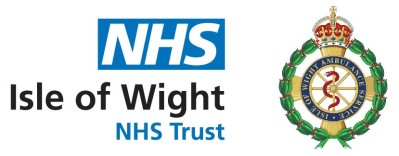Publish date: 25 June 2025
Earlier this month, Isle of Wight Ambulance Service (IWAS) began recruiting patients for the Spinal Immobilisation Study (SIS), a multi-site randomised clinical trial that aims to recruit over 2000 patients nationally. The trial is being jointly run between Imperial College London and Warwick University.
The Spinal Immobilisation Study aims to evaluate if a less restrictive form of spinal injury precautions in the pre-hospital setting, referred to as ‘movement minimisation’, is as safe as standard ‘triple immobilisation.’
Triple immobilisation refers to the use of a semi-rigid collar and headblocks, with the patient taped down to a scoop stretcher on the ambulance trolley. Movement minimisation uses headblocks or towel rolls so the patient can sit up slightly rather than the semi-rigid collar, tape and scoop stretcher. Patients who require pre-hospital spinal precautions and are attended to by the ambulance service will be randomly allocated to either triple immobilisation or movement minimisation.
Other research has shown that semi-rigid collars can cause issues, such as discomfort, pain and impaired blood flow through the blood vessels in the head and neck, which is why many ambulance services have stopped using them. However, there is limited evidence about triple immobilisation, which is still referred to as standard practice in many areas around the world.
SIS is the largest study of its kind comparing these two forms of spinal precautions and the third out-of-hospital clinical trial that the Isle of Wight Ambulance team have been involved in. IWAS has been training staff about the study since April and have now started to recruit patients.
Tom Gleeson-Hammerton, Specialist Paramedic – Research, IWAS, said, “We know that most patients taken to hospital by ambulance with spinal precautions don’t end up having a clinically significant spinal cord injury, however it is very difficult to determine which patients these are outside of hospital. This study aims to find a safe way to minimise the movement of patients with suspected spinal injuries, while minimising the risks of other complications.”
Dr John Pike, Medical Lead for IWAS, added, “The Isle of Wight Ambulance Service is a valuable location for research and, while a small service, is playing a significant role in large trials with international impact. Our teams are committed to finding ways to improve care for our patients and this study is an important part of that work.”
For more information, please see www.



